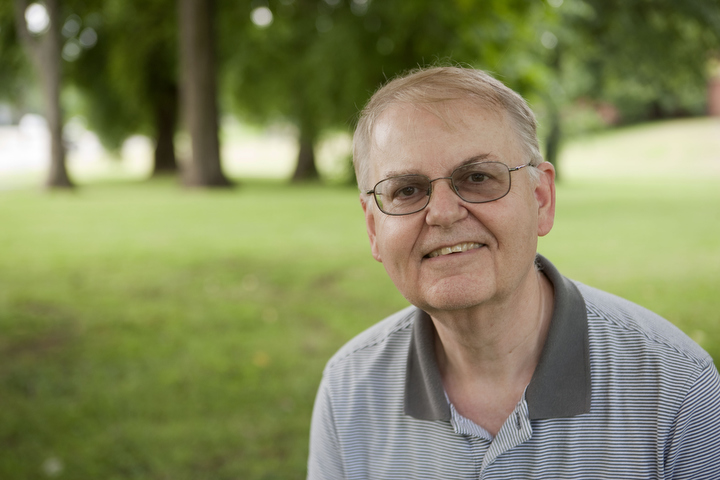
Gary Logston has always been a planner. When he married his wife Jane in 1985, Gary began setting aside a dollar a day to take her on a surprise trip to Australia for their 20th anniversary. By 2005, Gary had not only saved enough to take Jane to Australia, but also to bring their two kids with them to celebrate.
Not surprisingly, Gary plans for a living. For more than 35 years, he’s worked as an airport planner, a job that utilizes his passion for measuring probability and conducting analysis—and one that also keeps him on the go constantly. But in February 2011, Gary’s fast-paced schedule took an unexpected turn when he was diagnosed with stage II prostate cancer.
Scroll down to watch Gary’s video.
Gary spared no time asking his urologist what his treatment options were and what the possible outcomes of each could be. Choosing the course that would give him the best chance at full recovery, Gary scheduled a prostatectomy for the earliest possible date. Only six weeks after his diagnosis, he had the surgery. Pathology results revealed that the cancer had rapidly grown in the weeks since his diagnosis, affirming his decision to act quickly.
After moving to Tennessee a little more than a year after his surgery, Gary discovered that he still had detectable levels of prostate-specific antigen (PSA) meaning there was probability of recurrence. Not wanting to give the cancer a chance to spread or grow, Gary decided to pursue radiation treatment.
Gary wanted to be as prepared as possible to minimize the side effects—both physical and mental—that could result from seven consecutive weeks of radiation treatments. Gary’s radiation oncologist recommended he contact PearlPoint Cancer Support for nutrition guidance prior to starting treatment.
Gary spoke with one of PearlPoint’s registered dietitians who gave him dietary tips to help combat side effects, especially fatigue and weight loss. “By getting a head start, ten days in advance of treatment, I was fortunate to do well over the course of my treatment,” Gary says. “There’s no question that this nutrition knowledge helped me progress through treatment well.”
Gary also found an unexpected benefit in speaking to the dietitian; he discovered that having someone to talk to about the situation was extremely helpful. “Typically, people my age, especially men, don’t spend much time talking about things that are personal to them,” he explains. “Whether it’s out of stigma, pride, or fear, they hesitate to take advantage of a support system. But I found there’s great value in having support. When you start talking, you realize you’re not alone.”
Though not usually one to discuss his personal life, Gary began making an effort to share his experience with others. By doing so, Gary has counseled other men about the importance of health screenings.
“Having to discuss the details wasn’t easy,” Gary admits. “But it has opened up doors to encourage others to talk to their doctors about concerns and also to share importance of prostate exams—because without that exam, my outcome could have been very different.”
Gary, cancer-free for eight months, is back on the road—and in the air—for his job. Though cancer is never in anyone’s plans, Gary shows how much being proactive about treatment and seeking support can make a difference in the journey.

